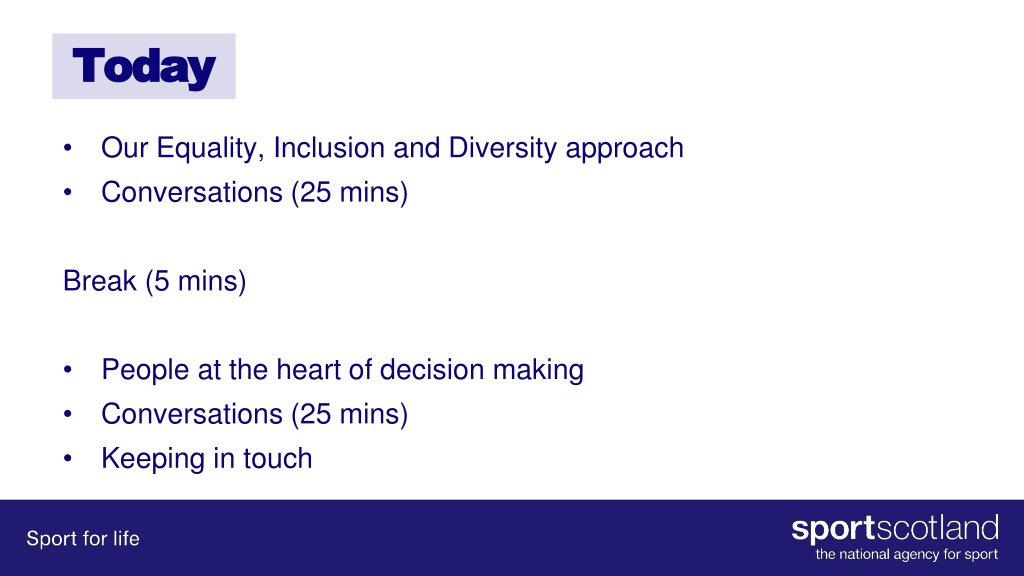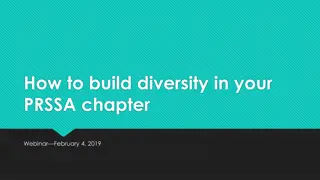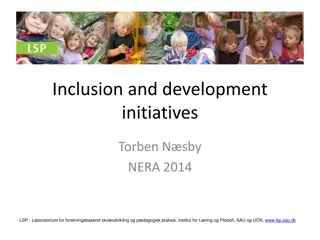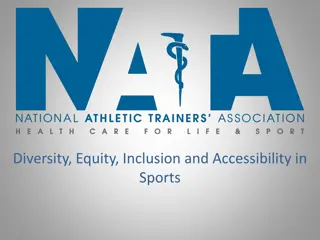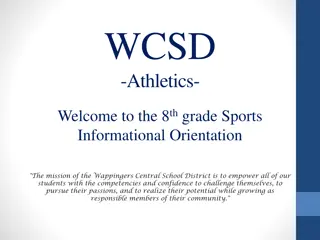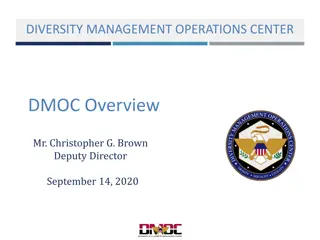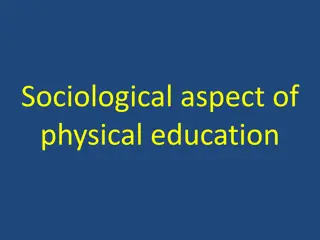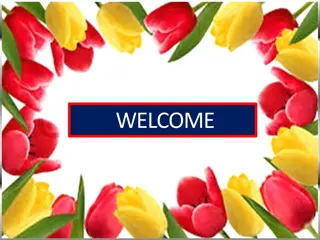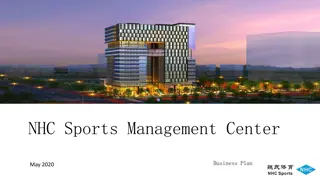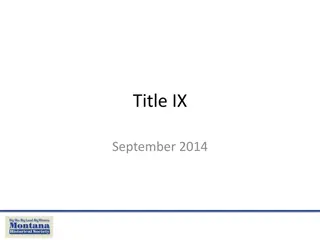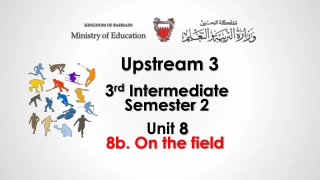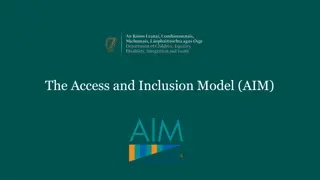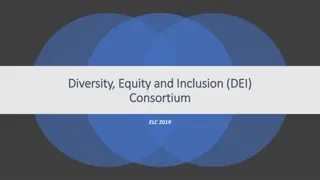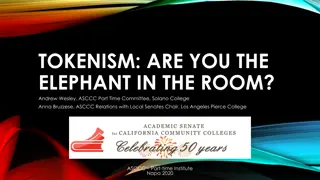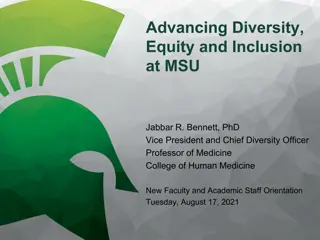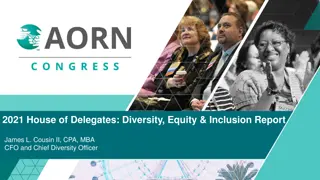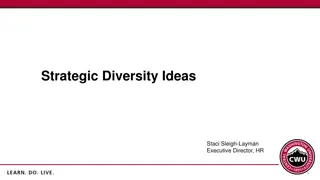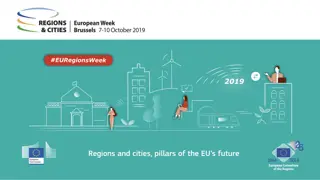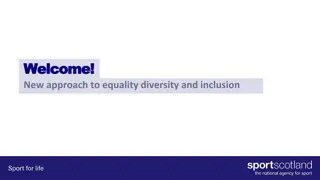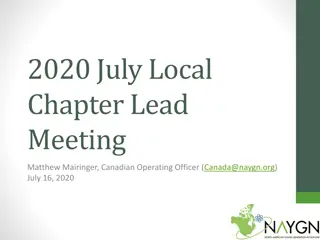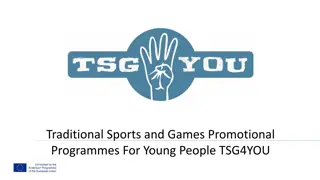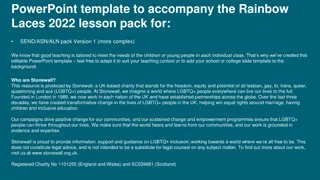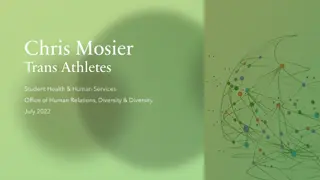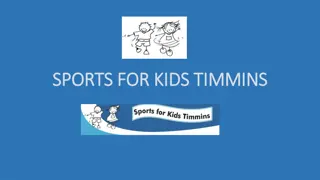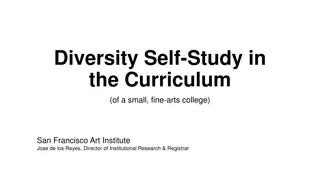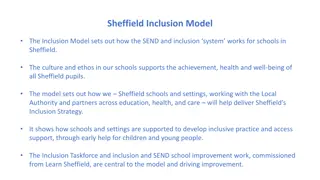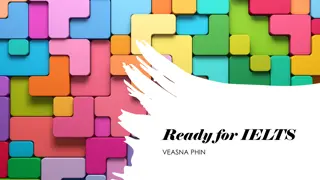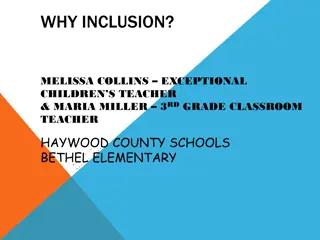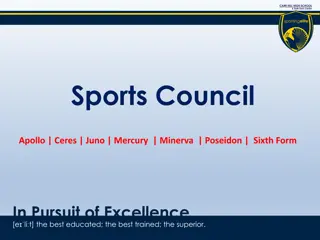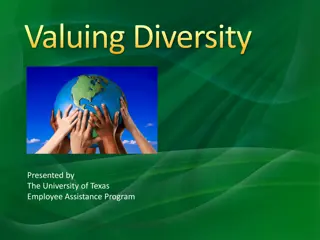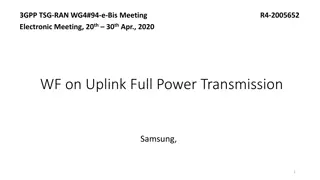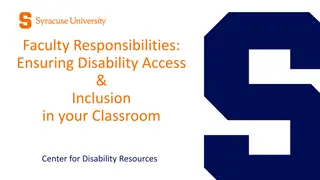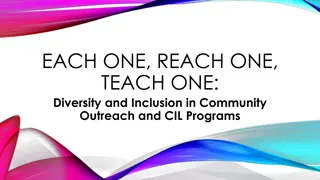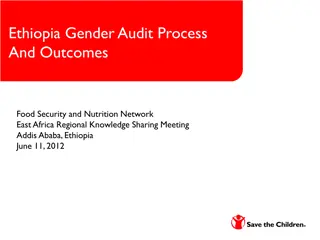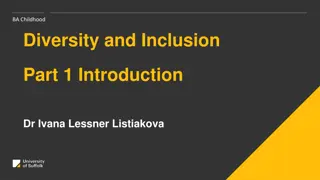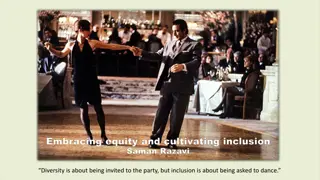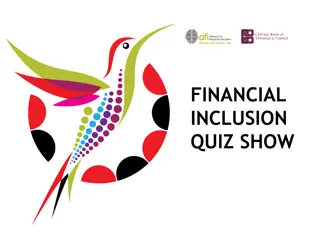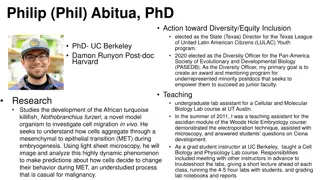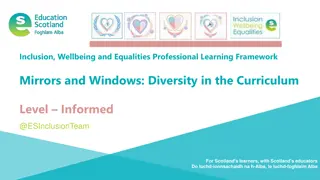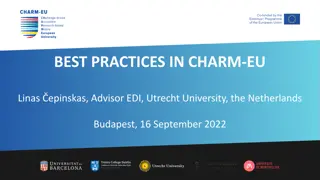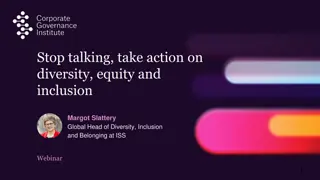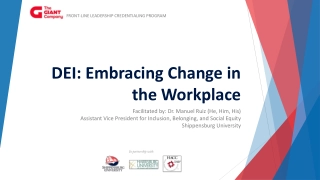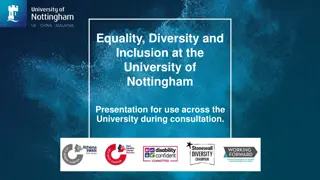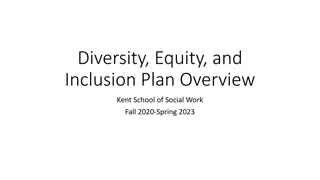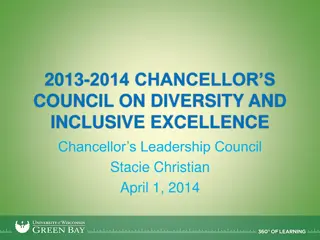Empowering Diversity and Inclusion in Sports Sector
Empowering diversity and inclusion in the sports sector through innovative approaches and targeted initiatives. Focus on underrepresented groups such as those in poverty, with mental health issues, older adults, and ethnically diverse communities. Prioritizing outcomes that ensure participation, voice, and opportunities for all. Seeking feedback to develop new resources for enhanced inclusivity.
Download Presentation

Please find below an Image/Link to download the presentation.
The content on the website is provided AS IS for your information and personal use only. It may not be sold, licensed, or shared on other websites without obtaining consent from the author. Download presentation by click this link. If you encounter any issues during the download, it is possible that the publisher has removed the file from their server.
E N D
Presentation Transcript
Today Today Our Equality, Inclusion and Diversity approach Conversations (25 mins) Break (5 mins) People at the heart of decision making Conversations (25 mins) Keeping in touch
Our new Our new approach approach Equality, Diversity and Inclusion Equality, Diversity and Inclusion EDI@sportscotland.org.uk
New EDI approach New EDI approach
Share: our new approach to Equality, Diversity and Inclusion (EDI) learning from our Equality Outcomes public consultation how we ll deliver the outcomes Purpose: Your feedback will inform the develop of new EDI resources for the sector
New ideas are outcome driven New ideas are outcome driven NEW IDEAS We experiment and co-design new approaches that respond to the needs of disadvantaged and excluded groups.
New ideas are outcome driven New ideas are outcome driven To feel: We will help people who: I see and hear people like me taking part Live in poverty and low income Experience mental health problems I have a voice in the decisions that affect me I feel like taking part is forme Are part of our diverse ethnic communities Are over 50 years old I can find opportunities that meet my needs
Why these groups? Why these groups? Those who are underrepresented in sport are also more likely to be affected by poverty and low income. o There is a spectrum of mental health. But we know that people with severe and enduring mental health problems tend to be most excluded from taking part. We want to better meet their needs. o The drop in sport participation in older age begins around 50 and continues. We are an aging population and we have more to learn about the needs of people in older age and how they want to take part. o We know that the population who participate in sport are not ethnically diverse and doesn t reflect our wider communities and populations. We think it should. o
Why these outcomes? Why these outcomes? To feel: I see and hear people like me taking part I have a voice in the decisions that affect me I feel like taking part is forme I can find opportunities that meet my needs
Why these outcomes? Why these outcomes? The offer Design and decisions How I feel Visibility and representation The offer isn't right for me. Cost and transport are barriers. It is not offered in places I would go to or at the times I am free. I'm concerned about amenities like changing rooms and toilets. It's daunting to start or to get back in to sport. I'm anxious. I don't feel safe. I don't feel confident. I don't have the motivation. I've had bad experiences. I'm nervous about new people and experiences. I don't have a voice in how sport is run. My needs aren't reflected. I'm not asked about what matters to me. I'm not involved in decisions. I don't have any connection with decision makers. I don't see or hear about people like me taking part. I feel excluded because there is a dominant group in sport it feels like their space, not mine. People make assumptions about me based on stereotypes.
Protected characteristics (Age, disability, gender reassignment, race, religion or belief, sex, sexual orientation)
Working together Working together Listen and ask This is a space to talk in whatever words you currently know. It doesn t matter if you use awkward or dated language. Language Be gentle It s ok to step off the call, or turn the camera off The important thing is that you start to explore openly what s on your mind as regards the topic. Confidentiality and recording
Working together Working together Groups of 5. Share your reactions to what you ve heard. What are your hopes for this approach? What are you not sure about? What questions does this leave you with? Purpose: Your feedback will inform the develop of new EDI resources for the sector
Working together Working together Cara Viola EDI@sportscotland.org.uk
Break time! 11:50 Break time! 11:50 11:55 11:55 The main session will restart at:11:55
New Ideas New Ideas People at the heart of decision making People at the heart of decision making
People at the heart of decision making People at the heart of decision making Delivering our "New Ideas" is about putting people at the heart of decision-making
Nothing for us, without us. Conversations, engagement and listening and understanding is crucial. The people who have the lived experience must be round the table too. We are not diverse as a sporting sector - but we can be proactive in creating environments to listen and understand. Partnerships with community based (and ethnic backgrounds essential. non-sporting) groups from multiple Equality Outcomes Consultation
New ideas are outcome driven New ideas are outcome driven NEW IDEAS We experiment and co-design new approaches that respond to the needs of disadvantaged and excluded groups.
Lets explore this idea of involvement together now, so -we understand this better -we can put this into practice together Purpose: Your views and experience will inform our approach to involvement and how we work together.
What is it? What is it? Participatory Service user involvement Engagement Consultation Experts by experience Co creation Co production Voices Co design
What is it? What is it?
What is it? What is it?
What is it? What is it? Co-production is where professionals and citizens share power to plan and deliver support services together, recognising that both partners have a vital contribution to make.
What is it? What is it? Coproduction refers specifically to work with people with lived experience of the service or policy in question, rather than any citizen. Co-creation or co-design, where people are involved in coming up with ideas, is not full coproduction but may be a step on the road to embedding coproduction in your way of working. Source: Coproduction and service user involvement NCVO Knowhow
Why do this? Why do this? Involving people who use services in the design and delivery of services can increase your impact.
Why do this? Why do this?
Safe Lives logo SafeLives is a UK-wide charity dedicated to ending domestic abuse, for everyone and for good. Survivors of abuse should feed into decisions because they are the experts by experience by gathering the experience of survivors and understanding their reality an appropriate and realistic response can be formulated.
Conversations Conversations In groups of 5 Practitioners views, opinions and experience Have you ever been involved as a citizen or service user? What are your views or opinions on involvement? Have you any experience of doing this? Do you work with under-represented or excluded groups - How would they want to get involved?
How are you feeling now? How are you feeling now? Please put a few words in the chat
Keeping in touch Keeping in touch EDI@sportscotland.org.uk Your input will help us develop: EDI resources for the sector our involvement approach We email a feedback form and keeping in touch information next week Updates website with today s slides and next steps
Thank you Thank you EDI@sportscotland.org.uk
New ideas timeline New ideas timeline Onwards to 2025 Outcomes 2021-25 published Share consultation findings Develop involvement approach Understanding needs and building New Ideas Action Plan April June - July August November
We won't give up until everyone experiencing a mental health problem gets support and respect. When mental health services were co-produced, those services were more effective for the people using them. They experienced: o An improved sense of belonging to local groups and networks. o Reduced stigma. o Increased skills and employability. Co-production meant people were able to improve skills, engage with formal learning and training opportunities and gain longer-term employment. People involved in the Expert Patient Programme reported a 24% increase in paid employment. o Improving physical and mental well-being. This was the strongest theme that emerged. We found that interventions shaped by co-production had a powerful impact on people s sense of competence, autonomy and relatedness, and on their personal, social and emotional capabilities. These are all fundamental to our ability to experience positive life outcomes and to maintain and grow our well-being.
